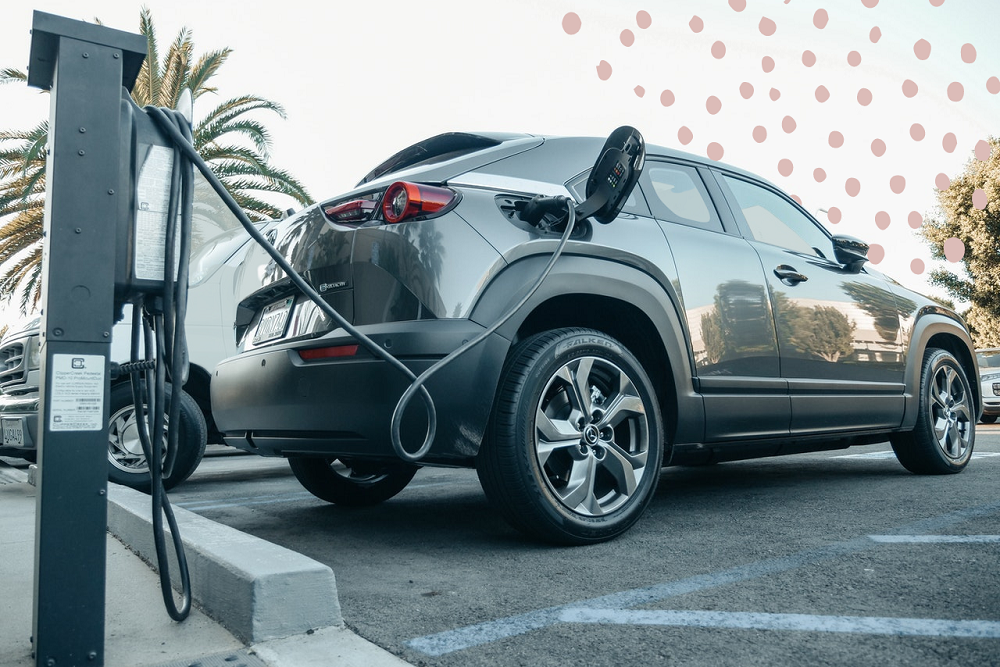If you’ve looked on the roads recently (or listened to the roads, in fact) you will have noticed that the number of electric vehicles in the UK has increased.
Switching to an electric vehicle isn’t simply a move to follow the latest fashion, however; doing so comes with several benefits. Many governments around the world have already enacted laws to phase out petrol and diesel vehicles, so for many, it’s a smart time to start considering making the switch.
But before you do so, there are a few things you need to think about to gauge if an electric car would be right for you. Here are 7 things to think about before switching to an electric car.
HOW WILL YOU USE THE CAR?
Conventional vehicles have one major advantage over electric cars: range. The range of an electric car is dictated by the battery in the car as well as the availability of charging stations along the routes you would like to travel. This means that you have to plan your route, taking charging stations and your battery into consideration. With a conventional vehicle, you only need to think about petrol stations, which is not a huge concern because there are thousands of petrol stations for each available charging station.
If you will be using your car for short runs or to commute to and from work, an electric vehicle with about 100 miles of range should serve you well. If you want to travel some distance during the weekends, consider vehicles that have about 150-200 miles of range. If you plan on going on long trips, choosing one with over 200 miles of range would be ideal.
The good news is that there are more electric vehicles with over 200 miles of range and more charging stations than there were a few years ago so “range anxiety” should not be such a big concern. Also, remember that an electric car’s range is affected by the speeds you drive at, if you brake a lot or not and the temperature outside; as such, there are ways to take care of the battery behaviourally.
Read: How to ensure your electric vehicle’s battery lasts
WHEN AND HOW TO CHARGE
Although the number of charging stations is increasing, many people find it easier and cheaper to charge at home. At home, you can get Level 1 charging (110- volts) or Level 2 charging (240 volts) outlets installed. Most people choose to install their chargers indoors so they can charge their cars overnight easily. If you decide to install one outdoors, you will need an electrician to ensure it is weatherproof and that it adheres to the laws and regulations set in your area.
If you do not have a charger at home, you can charge your vehicle to a usable level (an additional 20-25%) while eating lunch, shopping or going for a coffee – if it can be charged at 240V, that is. This is because many establishments are now installing electric vehicle chargers to lure electric vehicle owners inside. Many are also installing Level 3 (DC fast charging) chargers that can charge from 0 to about 80% in 30-60 minutes depending on the model.

TO BUY OR TO LEASE?
While the sales of electric vehicles have been increasing over the past few years, reports indicate that close to 80% of all electric vehicles are leased. This is a huge number compared to the 30% of all new vehicles of all types (fuel and electric) being leased. Electric car leasing comes with several advantages for the buyer including lower down payments and the availability of monthly premiums rather than paying through conventional financing. This makes a cheap electric car lease an attractive option for those who cannot buy a vehicle outright.
To attract people who are interested in electric vehicles, many automakers often offer electric car lease deals through other businesses. These EV lease deals can lower the cost of leasing the electric vehicle and popularise the brands behind the promotions as well as electric vehicles in general.
Leasing an electric vehicle also means that you are always driving a car with the latest technology as you will be able to switch cars and get a new or barely used one every 2-4 years depending on your lease agreement.
Understandably, many people have concerns about electric vehicles, with concerns arising about cost, charging and safety. Those interested in leasing or buying an electric vehicle can find all the information they need at ElectriX, a website dedicated to helping you switch to an electric car. They have detailed guides on anything you would like to know about electric cars, including EV lease deals, the types of chargers to use, where you can take your EV on a long trip, and more. Do check it out.
Leasing an electric car will also allow you to see if it will be right for you and your needs and will give you first-hand experience on how it would be to own and drive one daily.
INCENTIVES
Because governments want to make the switch to electric vehicles as fast and smooth as possible, they are offering various incentives for those who make the switch. These incentives help subsidise the cost of the electric vehicle. In the UK, for example, car owners can benefit from plug-in grants, purchase grants, lower ownership tax and lower company car tax, all of which can reduce the cost of buying or owning a personal or business electric vehicle significantly.

MAINTENANCE AND BATTERY LIFE
Another consideration when switching to an electric car is the battery. While electric vehicles generally require a lot less maintenance than their petrol and diesel counterparts due to the fewer moving parts, one thing that requires regular checks is the battery.
Battery technology has come a long way in the past few years, with manufacturers saying that their vehicles’ batteries should be good for about 100,000 miles. Do note that even with the improvements made in this area, electric vehicle batteries still degrade and thus hold less charge over time.
You can expect to replace the electric vehicle battery after 8 years, although some manufacturers in China claim to have new battery technology that will take that to 15 years. Because we are so far yet to see any early EV models requiring battery swaps due to degradation, we can assume that the batteries will last as long as the vehicle does.
INSURANCE
Generally speaking, EV insurance tends to be more expensive than that of petrol and diesel vehicles. The main reason for this is because these vehicles are usually more expensive to repair, mainly due to the expensive battery packs. These costs are passed down to the vehicle owner.
ELECTRIC BILL
Switching to an electric vehicle that is charged at home means you move the cost of charging into your electric bill. That said, even with this increase, you shouldn’t be too concerned; electric vehicles cost around £9.00 for a full charge depending on where you live and when you charge it.
Most people drive about 16 miles per day on average, meaning that the cost of charging the electric vehicle, depending on a few factors like how you drive, will come to around £20.00 per week, which is cheaper per mile than a diesel or petrol vehicle.
THE BOTTOM LINE
There is a lot of discussion surrounding electric vehicles, considering the environmental benefits they have, and petrol and diesel vehicles are being pushed out. An electric vehicle is a great option, but there are some things you will need to consider before you make the switch.
Check out these 4 gift ideas for electric car owners this Christmas.





